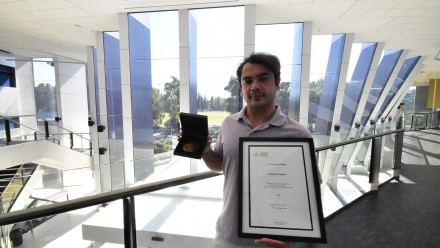The 7th Annual John Curtin Lecture in Medical Research: Understanding the causes of human autoimmune diseases
Autoimmune diseases arise when our immune cells turn against our own tissues and cells, damaging or destroying them. Rogue production of antibodies by B cells are causes, triggers or exacerbators in most autoimmune diseases. There are over different 80 autoimmune diseases affecting 3-5% of the population, and no cures. In order to develop better and more effective treatments, it is imperative that we understand the molecular and genetic causes of these diseases. Our classical mouse-to-human approaches provided useful insights into the cells and pathways involved in the control of antibody responses, uncovering specialised B cell helper and regulatory T cell subsets known as follicular helper T (Tfh) and regulatory (Tfr) cells and important effector molecules. Nevertheless, a block in translation into more effective therapies remained. The last decade has revolutionized the way we can understand human disease pathogenesis. Thanks to the blue-sky research that led to the discovery of next generation sequencing technologies and genome-editing tools such as CRISPR, we have now turned our approach around into a “human-to-mouse-to human” platform that can more precisely pin-point the exact disease culprits. Through sequencing whole human genomes we can now identify variants likely to contribute to disease and functionally validate them by introducing the orthologous mutations in mice or cell lines. This effort is helping understand how diseases such as lupus and other immune disorders come about and illuminate how they can be treated. They are also providing important insights into why women are 9 times more susceptible to develop autoimmune diseases than men.
Professor Carola Vinuesa was born in Spain and obtained a medical degree at the University Autonoma of Madrid. She undertook specialist clinical training in the UK and in 2000 was awarded a PhD by the University of Birmingham. A year later she was the recipient of a Wellcome Trust International Travelling prize Fellowship to do postdoctoral work at The John Curtin School for Medical Research in The Australian National University. Since 2006 she has been a group leader. She has been the recipient of several prestigious awards including the Science Minister’s Prize for Life Scientist of the year (2008), the Gottschalk Medal of the Australian Academy of Sciences (2009). In 2015, she was elected as a Fellow of the Australian Academy of Science. She is currently Professor of Immunology at the Australian National University and Director of the Centre for Personalised Immunology (CPI), an NHMRC Centre for Research Excellence.












